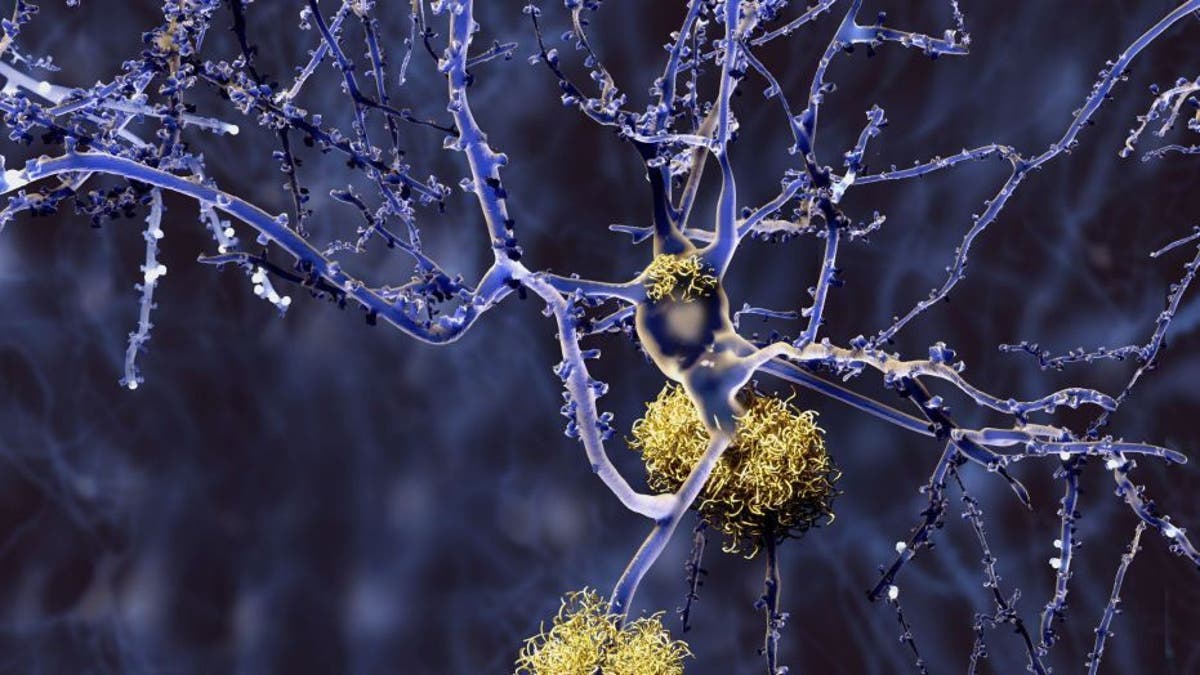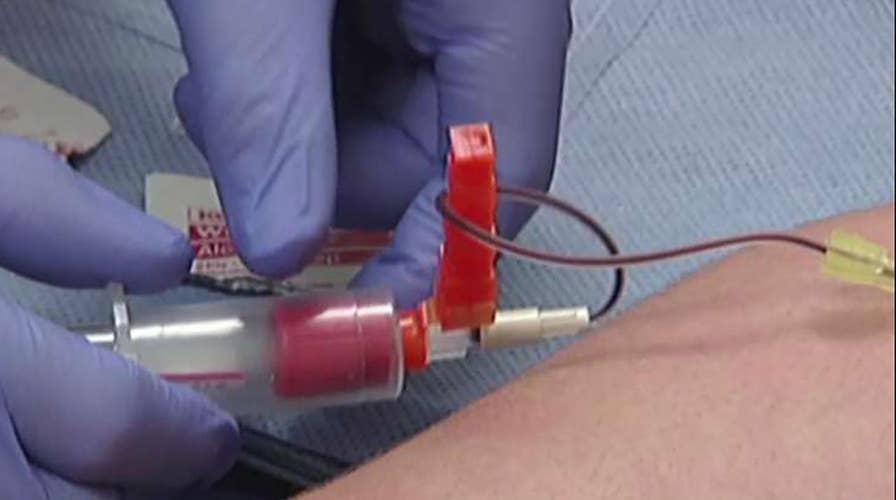New blood test can identify Alzheimer's disease years before symptoms
Dr. Marc Siegel on a new blood test that can accurately identify Alzheimer’s disease years before a brain scan.
Researchers at the Washington University School of Medicine in St. Louis claim to have determined a method for diagnosing Alzheimer’s dementia via a blood test, possibly years before a brain scan would be able to detect the disease.
Reporting on their findings in the medical journal Neurology, researchers say the test would analyze the levels of specific amyloid proteins, believed to be an indicator of Alzheimer’s. Together with other factors, including age and genetics, the researchers say their test is 94 percent accurate.
In addition to more accurate diagnoses, the findings could mean a breakthrough in treatment options may come sooner than later, as more study subjects would be available for testing at earlier stages of the disease, according to the study’s senior author.
"Right now we screen people for clinical trials with brain scans, which is time-consuming and expensive, and enrolling participants takes years," said Randall J. Bateman, MD, the Charles F. and Joanne Knight Distinguished Professor of Neurology, in a news release shared with Science Daily. "But with a blood test, we could potentially screen thousands of people a month. That means we can more efficiently enroll participants in clinical trials, which will help us find treatments faster, and could have an enormous impact on the cost of the disease as well as the human suffering that goes with it."
"Reducing the number of PET scans could enable us to conduct twice as many clinical trials for the same amount of time and money."
Researchers added that the early diagnosis of Alzheimer’s is critical for its treatment. Those who don’t have immediate access to PET scans, or whose initially PET scans come back negative for cognitive ailments, may greatly benefit from the blood tests, as amyloid plaques are believed to start building up in the brain and blocking cell-to-cell signaling “up to two decades before people develop the characteristic memory loss and confusion of Alzheimer's disease,” per the news release.

Researchers say the test would analyze the levels of specific amyloid proteins, believed to be an indicator of Alzheimer’s. Together with other factors, including age and genetics, the researchers say their test is 94 percent accurate. (iStock)
"Reducing the number of PET scans could enable us to conduct twice as many clinical trials for the same amount of time and money,” Bateman added.
CLICK HERE TO GET THE FOX NEWS APP
Researchers, however, say it may be years before the test would be available for clinical use in doctors’ offices.









































